No sector of the economy has been untouched by the COVID-19 pandemic, and the airline industry has been particularly hard-hit. While receipt of federal funds precluded the airlines from laying off staff until the first of October, flight crews have seen drastic reductions to their hours as the public has been reluctant to return to air travel. For three pilots and Team Rubicon volunteers, the extra time on the ground has given them more opportunities to serve people impacted by disasters.
Rob Schmidt will be the first to tell you that he feels lucky to have a job. Like all of the major airlines, his company, Alaska Airlines, has seen a drastic reduction in demand for flights since the start of the COVID-19 crisis. The company offered early retirement and a menu of voluntary leave options that pilots have largely taken advantage of, which has spared Schmidt from furlough thus far, but he’s still been left with more time on the ground than is typical. And so, Schmidt took those hours out of the air and put them into volunteering, instead.
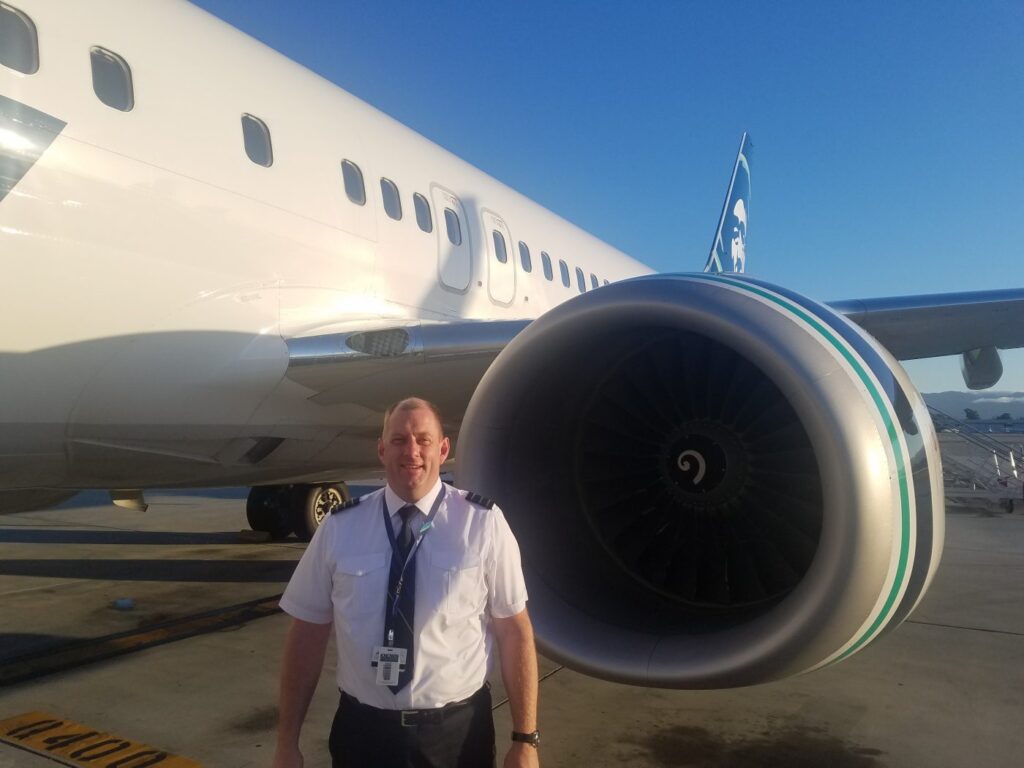
Since May, Schmidt has served on more than 30 feeding operations with Team Rubicon, handing out food to people facing food insecurity as a result of the pandemic.
Not that his previously busy schedule kept him from supporting Team Rubicon. Schmidt’s been all-in on the Team Rubicon mission since 2017, when he traded in his Air Force flight suit for an Alaska Airlines uniform—and for a Team Rubicon grey shirt. By October of that year he was on his first operation, serving the people of Houston after Hurricane Harvey, mucking out houses in Kashmere Gardens. In 2019, he joined Operation Never Forget in Orting, Washington, where the team tore down a derelict house and performed long-neglected maintenance around the grounds of the VA’s Washington Soldiers Home.
Over the past three years Schmidt, who has served as membership coordinator for Washington state, even used his time on layovers to meet with potential volunteers. Then, as soon as he landed back in Seattle, he would head out on road tours to membership events across Washington and Oregon.
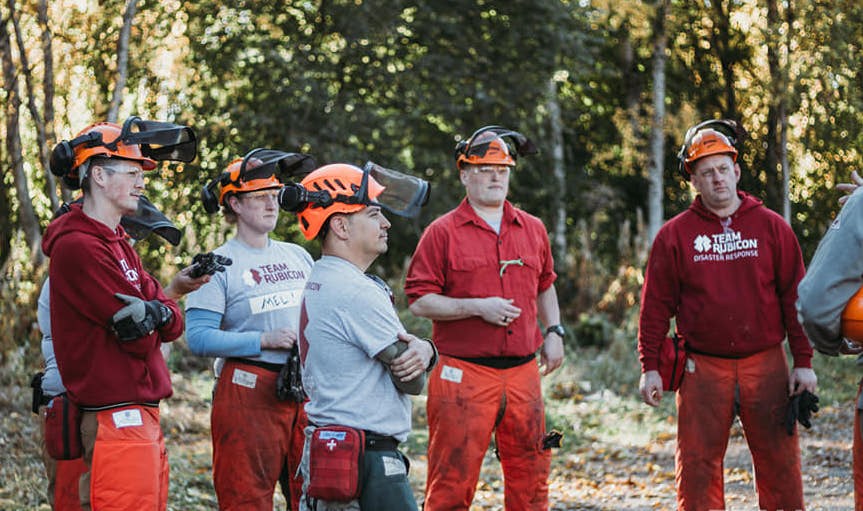
For his tireless efforts, Schmidt was Team Rubicon’s Veterans Award recipient this year. His award citation notes that his flight schedule may have lightened, but his desire to serve remained. He has served on mission planning teams, as a command and general staff member, as strike team leader, as general responder, and according to one other Team Rubicon volunteer, been an “overall badass.”
Schmidt remains humble about his service and the accolades it has brought him. “I was hoping to keep that under wraps,” he said with a laugh.
Using Her Time on the Ground to Fight Hunger
While American Airlines pilot Susan Washington has not been furloughed due to COVID-19, she knows firsthand how volatile the airline industry can be. She was laid off during the economic downturn in 2001 and now, as a more senior pilot, serves on the furlough support team for American. The airline recently retired the 767 that she had been flying, so she is currently grounded while she waits to retrain in another aircraft.
An Air Force veteran, Washington had joined American Airlines in 2001, only to be furloughed after 9/11. So, she went back on active duty and by 2003 had become the first USAF Air Advisor to the Afghan Air Corps. In Kabul, she noticed that the German tower controllers spoke English on the radios, but none of the Afghans spoke English at all. “It was very dangerous and chaotic; the Afghans taxied, took off, and landed as they pleased, without telling anyone else what they were doing, because they couldn’t.”
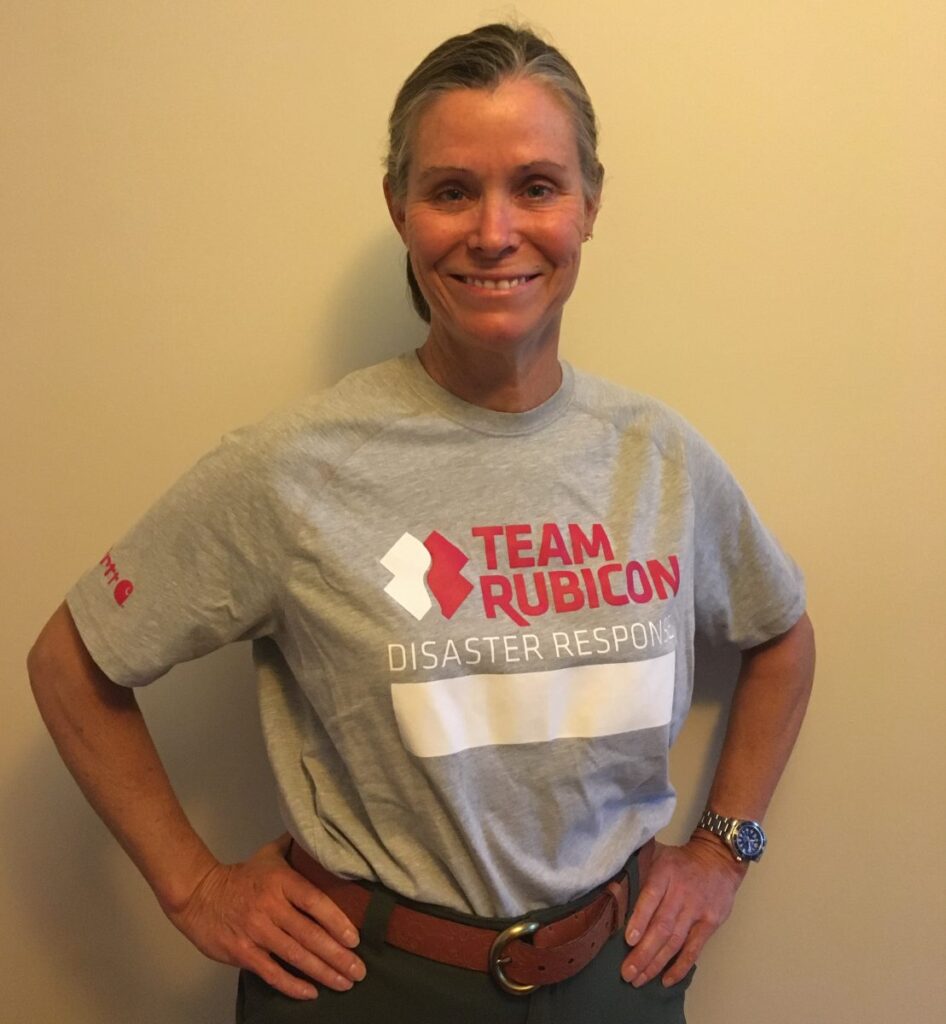
To help solve that, Washington and her interpreter taught Afghan pilots English. When their English was good enough, one stood next to the German controller any time the Afghans were flying and translated to Dari for the pilot. “It was one of my favorite parts of being there. I really loved the Afghan people,” she said.
Washington went back to work for American when she retired from service in 2015. Now, while she waits out the pandemic and to be retrained on the new plane, she is using her time to get more involved in local Team Rubicon operations, finding a sense of purpose in supporting the feeding operation Kick the King in Philadelphia. Every week, she and a team of volunteers pack food boxes for the elderly, which are then distributed by other community volunteers.
“I’m lucky,” Washington said. “I have a job that fulfills me, that gives me a great deal of satisfaction. Right at the moment, I am missing that job. And believe it or not, working with a bunch of strangers standing on an assembly line, putting food into boxes, is giving me a similar sort of satisfaction.”
A Love for Mission
Like many veterans, Southwest Airlines first officer Joe Maxon found a sense of purpose lacking in the corporate world when he left the Air Force five years ago. He loved his job, but the call to service he’d long experienced in the military was missing. It was while in the Bahamas supporting Hurricane Dorian relief efforts in 2019 that he realized he had found an organization filled with people who were looking to do something more.
“In the civilian world, people tend to focus on how they can improve their own lives,” Maxon said, quickly noting that this is not inherently bad. In Abaco, however, he discovered a group of people whose focus was always on the mission. “If something needed to be taken care of, people just did it. There wasn’t any hesitation. There wasn’t any what’s-in-it-for-me,” he said.
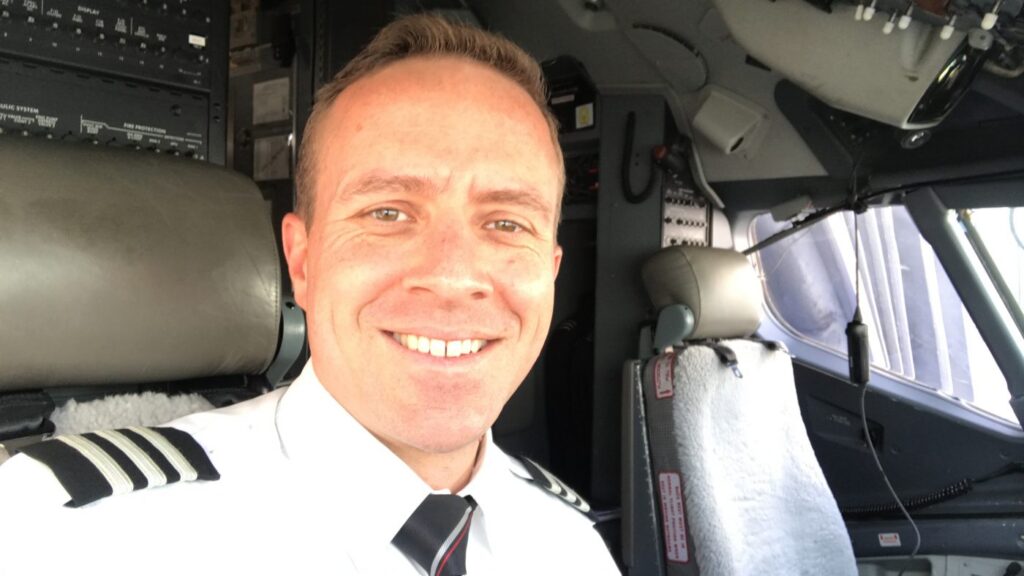
Maxon has been hooked on Team Rubicon since that day. When his flying hours at Southwest reduced, he used the time to volunteer more, participating in 10 feeding operations during the pandemic. Then, in September, he headed to Lake Charles, LA, for a weeklong deployment serving survivors of Hurricane Laura. While there, he learned to tarp roofs—perhaps appropriate for a pilot—then extended his deployment for a second week so he could tarp even more roofs before Hurricane Delta rolled in.
If the airlines face an uncertain future, Maxon feels grateful for what he has, and for his ability to serve.
“To go into someone’s home that’s been destroyed by a hurricane and try to help them fix it, you tend to see a lot more of their lives than you would see from a distance,” he said. “A lot of us have everything we could possibly want, so being here helping someone who needs as much as we can give them is worth it.”
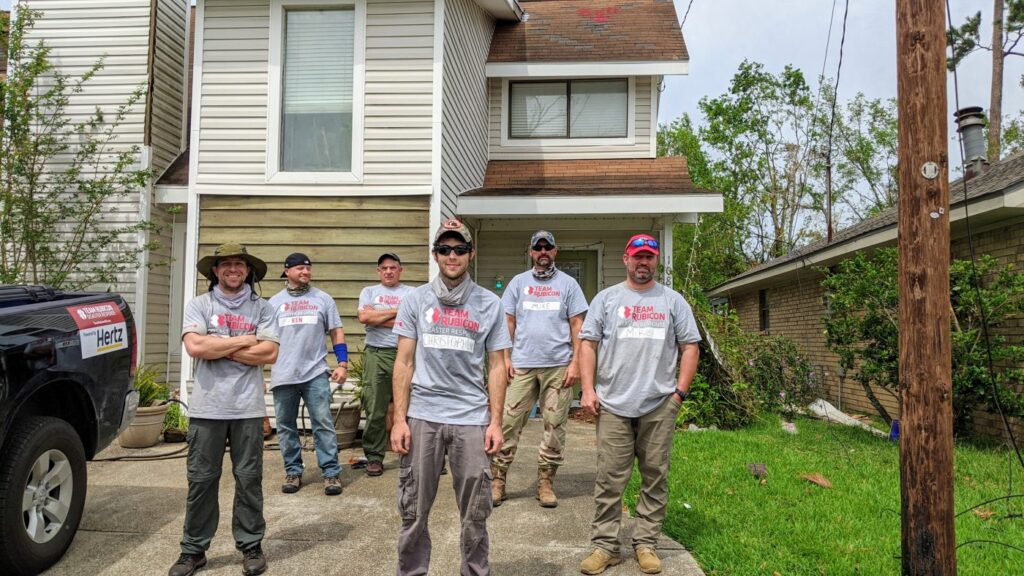
Read about a FedEx pilot and Greyshirt in A Greyshirt Who Goes Above and Beyond.



